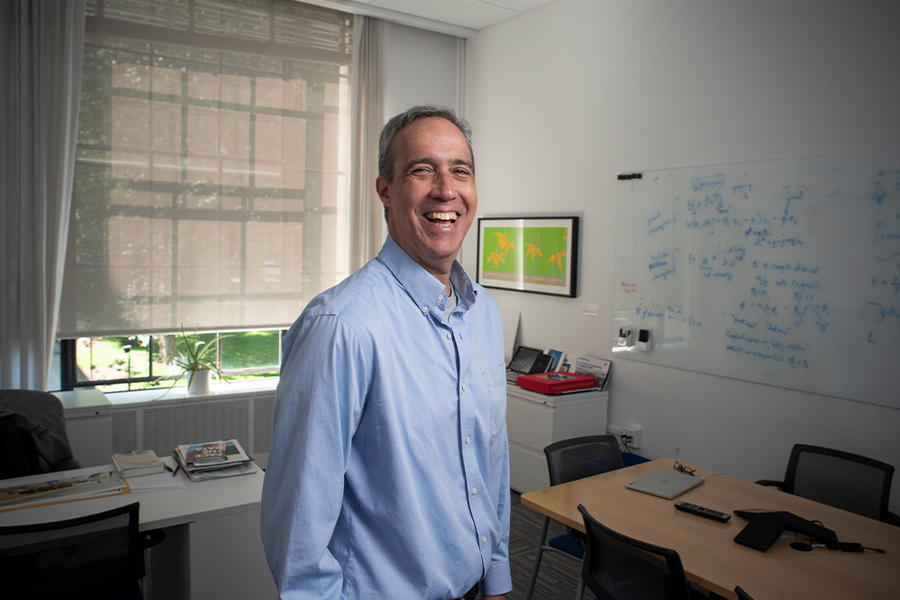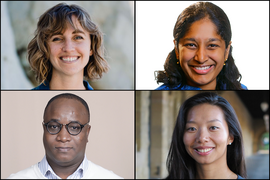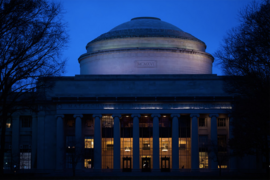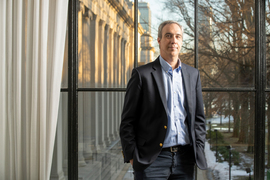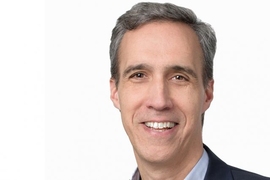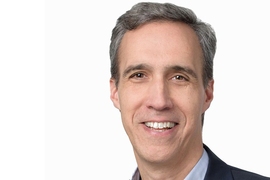As a graduate student doing his master’s thesis on speech recognition at the MIT AI Lab (now the MIT Computer Science and Artificial Intelligence Laboratory), Dan Huttenlocher worked closely with Professor Victor Zue. Well known for pioneering the development of systems that enable an user to interact with computers using spoken language, Zue traveled frequently to Asia — where much of the early research in speech recognition happened during the 1980s. Huttenlocher occasionally accompanied his professor on these trips, many of which involved interactions with members of MIT Industrial Liaison Program, as he recalls. “It was a tremendous opportunity,” according to Huttenlocher, “and it was a large part of what built my interest in engaging with companies and industry in addition to the academic side of research.”
Huttenlocher went on to earn his PhD in computer vision at the Institute and has since embarked on a career that encompasses academia, industry, and the philanthropic sector. In addition to solidifying his status as an esteemed researcher in the academic realm, he spent 12 years as a scientist at Xerox’s Palo Alto Research Center before leaving to co-found a financial technology company. He served on the board of the John D. and Catherine T. MacArthur Foundation from 2010-22 (including as chair starting in 2018), and serves on the boards of directors at Amazon.com and Corning, Inc. He also helped found Cornell Tech, the technology, business, law, and design campus in New York City built by Cornell University. There, he was the school’s first dean and vice provost, guiding its efforts to tie together industry and computing to enhance New York’s tech ecosystem.
Today, Huttenlocher serves as the inaugural dean at MIT Schwarzman College of Computing. To highlight the significance of this moment in time, and the need for an interdisciplinary computing hub like the college of computing, he references the oft-cited prediction that software would gobble up and disrupt traditional industry structures. Huttenlocher believes that while this insight was right, what we’re experiencing now is something different, greater, with vast implications for humanity. Computing on the whole — not only software but also hardware, algorithms, and machine learning — has evolved to the point where it is redefining our approach to problem-solving in nearly every industry sector, discipline, and area of research. This, he suggests, is also redefining reality as we experience it.
With Huttenlocher steering, the college is both recognition and response to a new era of computing. It explores ways to support, but also to lead, the technological changes that are reshaping the world. A bidirectional, interdisciplinary approach is key to the agenda, according to Huttenlocher. “We want to harness the forefront of results in computing and infuse them with the other disciplines,” he says. “This means helping departments outside of computing stretch toward computing, but we also want to help the computing fields to stretch toward the other disciplines.” To accomplish this, Huttenlocher and the college aim to forge strong ties and collaborations in education and research between computing and a broad range of disciplines at MIT, across all five schools, departments, and programs at the graduate and the undergraduate levels.
From an operations standpoint, the college is not yet three years old, but Huttenlocher has already overseen the rollout of several programs and initiatives that build toward the infusion of computing with other disciplines. MIT committed to the creation of 50 new faculty positions for the college: 25 in computer science and artificial intelligence, and 25 shared positions rooted in other academic departments not primarily focused on computing. Thus far, it has hired 25 new faculty members with a half-dozen in shared positions.
He has also overseen the development of Common Ground for Computing Education, a platform that unites experts from departments across the Institute to develop and teach new courses and launch programs that blend computing with the other disciplines. It aims to capitalize on the ubiquity of computing through a coordinated approach to computing education at the Institute. Current common ground subject offerings include “Interactive data visualization and society,” “Solving real-world problems with optimization and computational imaging: Physics to algorithms,” and “Julia: Solving real-world problems with computation.”
The Social and Ethical Responsibilities of Computing (SERC), meanwhile, is a cross-cutting initiative that encourages responsible technology development and deployment by incorporating insights and methods from the humanities and social sciences with an emphasis on social responsibility. “SERC brings together multiple viewpoints — social scientists and humanists, engineers and computer scientists — because so much of understanding the societal and ethical challenges of computing is about combining expertise across these disciplines,” says Huttenlocher. The initiative relies on a clearly defined teaching, research, and engagement framework designed to assess the broad challenges and opportunities associated with computing while fostering what it refers to as “responsible habits of mind and action” in MIT students who create and deploy computing technologies. Proving demand and impact, in 2021 more than 2,100 students were enrolled in subjects in which SERC worked with instructors to incorporate social and ethical issues into the syllabus.
In his book, “The Age of AI: And Our Human Future” (Little, Brown, 2021), co-authored with Henry Kissinger and Eric Schmidt, Huttenlocher explores the ways in which artificial intelligence is fundamentally changing how we view ourselves as human beings, our role in society, how we perceive the world around us, and the need for collaboration across disciplines to define the future. Reflecting on what he and his colleagues have been able to accomplish at the college in such a short time frame, Huttenlocher says he is impressed with and proud of what so many at MIT have already contributed to. But that the work is far from finished: “I believe are now getting to the point where we are starting to have impacts in parts of MIT, but we’re working toward broad impact, an infusion between computing and the disciplines across the Institute — that is the aspiration of MIT Schwarzman College of Computing,” he says.
